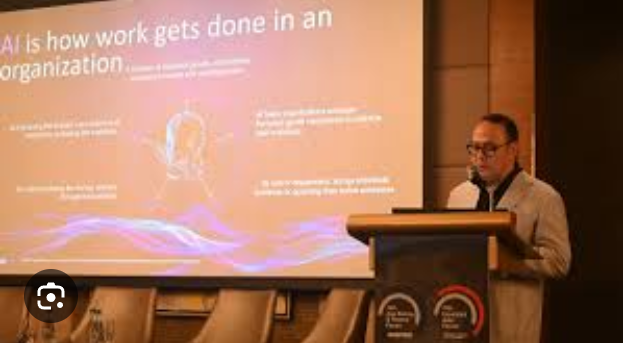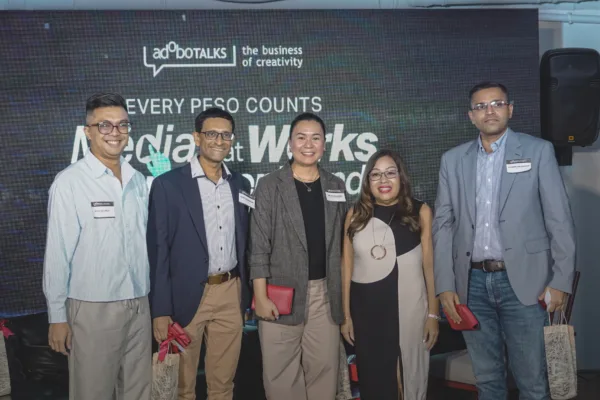
Artificial intelligence (AI) and its rapid adoption in financial services is transforming the industry, but experts caution that the successful integration of these technologies requires a principled approach to ensure transparency, fairness, and compliance.
Speaking at the Asian Banking and Finance Forum in Manila, Emmanuel Bonoan, Vice Chairman and COO of KPMG R.G. Manabat & Co., emphasized that financial institutions must implement strong governance structures to monitor AI adoption and its alignment with company strategies.
Without such frameworks, artificial intelligence could fail to live up to its transformative potential and pose significant risks to reputation and regulatory compliance. Strengthening governance of artificial intelligence and bolstering cybersecurity measures, as well as aligning with global standards, will be crucial for the Philippines to navigate the challenges of the digital era.
Proactive measures will protect citizens’ privacy and enhance national cybersecurity, ensuring that artificial intelligence remains a positive force for innovation and development. With a commitment to data protection and innovation, the Philippines can effectively balance the promise of artificial intelligence with the protection of its citizens’ rights.
AI has vast potential but must be approached with care
“Artificial intelligence has enormous potential, but it must be approached with care,” Bonoan said. “You cannot just jump in wholesale. You have to start small, experiment responsibly, and ensure that your people are properly trained before scaling the technology across the organization.”
Bonoan pointed out that financial services firms need to be cautious, particularly when using artificial intelligence tools. These systems, which use machine learning to generate content or predictions, introduce complex challenges regarding governance and regulatory compliance. Institutions must be transparent about how their artificial intelligence models operate and ensure they follow legal and ethical guidelines to maintain trust and mitigate reputational risks.
“Artificial intelligence is a tool, but it must be deployed thoughtfully,” Bonoan stressed. “The key is transparency and fairness in the decision-making process, especially when you’re using artificial intelligence to assist or make financial decisions.”

Emmanuel Bonoan, vice chairman and COO at KPMG R.G. Manabat & Co.
A critical step in artificial intelligence adoption, according to Bonoan, is data quality. He warned that running artificial intelligence on inaccurate or incomplete data could have disastrous consequences. “Running artificial intelligence on bad data can lead to mistakes, and when those mistakes affect your clients or your business operations, the repercussions can be severe,” he said. “The data must be reliable and accurate to avoid potential regulatory scrutiny.”
For artificial intelligence systems to truly deliver value, Bonoan stressed the importance of a structured testing and validation process. This allows organizations to continuously assess the performance of their artificial intelligence models, identify potential issues, and make improvements. “It’s about identifying the positive outcomes and resolving any problems that arise,” he explained. “It’s an ongoing process.”
Another key point that Bonoan made was the need for clear communication across the organization regarding artificial intelligence strategies. Financial services firms must ensure that both employees and external stakeholders understand the role artificial intelligence will play in the business and its potential impact on day-to-day operations.
“Having the right people in place is crucial, but just as important is communicating your AI strategy clearly across the entire business,” he noted. “For example, when artificial intelligence contributes to a decision or recommendation, we make sure to disclose that part of the process involved artificial intelligence, while also ensuring that a human has reviewed and validated the final output.”
Growing AI interest within financial services industry

Bonoan also highlighted the growing interest in artificial intelligence within financial services, pointing to recent research from KPMG’s global tech report, which revealed that six in 10 global technology leaders in the industry believe artificial intelligence and machine learning could help them achieve their short-term goals.
However, he cautioned that artificial intelligence should not be adopted simply for the sake of following trends. “It’s about identifying the business outcomes you want to achieve, then using artificial intelligence to solve those specific problems,” he explained. “In risk management, for example, artificial intelligence can help identify patterns and predict future risks, making processes more efficient and effective.”
AI’s potential to drive large-scale change in financial services is particularly relevant to younger workers, who are driving innovation across the sector. Bonoan, who noted that the average age of employees at KPMG Philippines is between 28 and 32, said that a youthful workforce is key to the company’s ongoing pursuit of innovative solutions.
“The younger generation is pushing us to rethink products and processes. They’re the ones who are most excited about artificial intelligence and its possibilities,” Bonoan said.
Despite the excitement, Bonoan urged caution. “It’s important to take a step back and truly understand what artificial intelligence can do, and what risks or opportunities are involved,” he shared. “Artificial intelligence is not just a buzzword; it’s a powerful tool that, if used correctly, can reshape the way we do business and how we interact with our clients.”
At the end of his speech, Bonoan emphasized that while artificial intelligence holds tremendous promise for the future of financial services, its adoption must be done with care, clear strategy, and a commitment to governance and transparency. By doing so, institutions can unlock the full potential of artificial intelligence while managing risks and building trust with clients and stakeholders.





